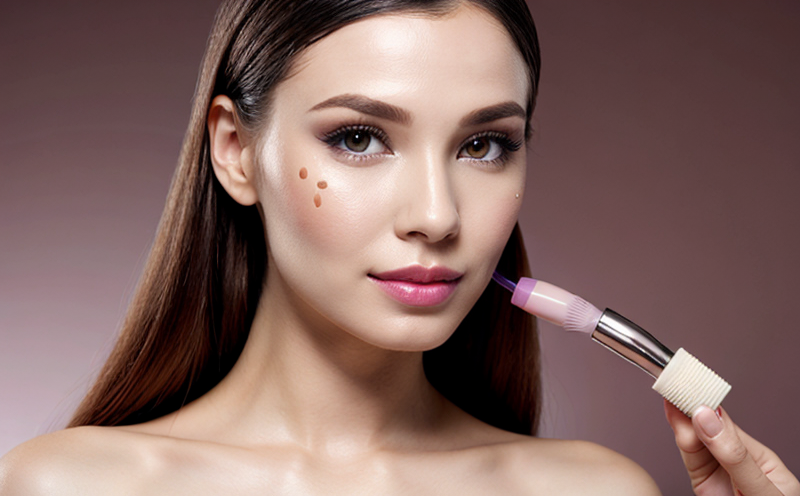In Vitro Preservative Efficacy Challenge Testing in Cosmetics
Preservatives are essential components of cosmetic products to ensure their stability and safety by preventing microbial contamination. Ensuring that these preservatives are effective is a critical step before bringing any product to market. In vitro preservative efficacy challenge testing provides a robust alternative method for assessing the effectiveness of preservatives in cosmetic formulations without requiring live organisms, thus reducing animal use and enhancing sustainability.
This test involves exposing the cosmetic formulation to known microbial challenges under controlled conditions that simulate real-world scenarios. The goal is to determine whether the preservative can prevent microbial growth within a specific time frame. This method not only adheres to regulatory requirements but also supports ethical considerations in product development.
The process typically begins by preparing the cosmetic sample according to standard protocols. Next, various microbial strains—such as Lactobacillus, Candida, and Burkholderia—are inoculated into the sample at predetermined concentrations. The sample is then incubated under conditions that mimic storage or usage environments to observe any changes in microbial activity.
The test results are analyzed using validated methods, often involving microbiological assessments and chemical analyses. Compliance with standards such as ISO 24721:2019 for preservatives used in cosmetics ensures the reliability of these tests. The data generated from this testing helps manufacturers make informed decisions about their product formulations.
The importance of this testing cannot be overstated, especially in today's regulatory landscape where there is a growing emphasis on reducing animal testing and promoting alternative methods. By offering comprehensive services that comply with international standards like ISO 24721:2019, Eurolab ensures that clients meet the highest quality and safety benchmarks.
Through rigorous in vitro challenge tests, we provide detailed reports that help guide product development towards more effective preservation strategies. Our expertise spans various types of preservatives including parabens, benzyl alcohol, and phenoxyethanol, ensuring a holistic approach to cosmetic formulation testing.
Why It Matters
The significance of in vitro preservative efficacy challenge testing lies in its ability to provide accurate and reliable data about the performance of preservatives. This is crucial for several reasons:
- Regulatory Compliance: Meeting international standards such as ISO 24721:2019 ensures that your products comply with global regulations.
- Ethical Considerations: By avoiding live animal testing, this method supports ethical product development practices.
- Sustainability: Reducing the use of live animals contributes to a more sustainable approach in cosmetic testing.
- Risk Management: Early identification and resolution of potential issues can save time and resources during product development.
Moreover, this method allows for the optimization of preservative concentrations, which reduces unnecessary ingredients while maintaining safety. This not only enhances the overall quality but also contributes to a more eco-friendly production process.
The results from these tests are invaluable in ensuring that cosmetic products remain stable and safe throughout their shelf life. By leveraging such testing methods, manufacturers can ensure consumer confidence and trust in their products.
Benefits
In vitro preservative efficacy challenge testing offers numerous advantages for quality managers, compliance officers, R&D engineers, and procurement teams:
- Enhanced Safety: Ensures that the products are safe from microbial contamination.
- Rapid Prototyping: Allows for quick identification of potential issues in formulation design.
- Faster Development Cycles: Shortens the time required to bring new products to market.
- Ethical Testing: Supports a more humane approach by reducing reliance on animal testing.
- Compliance Assurance: Helps in adhering to international standards and regulatory requirements.
- Sustainability: Promotes eco-friendly practices through ethical testing methods.
- Data-Driven Decisions: Provides comprehensive data that can be used for informed decision-making in product development.
These benefits underscore the importance of incorporating such tests into your cosmetic formulation processes. They not only enhance safety but also contribute to a more efficient and sustainable approach to product development.
Eurolab Advantages
At Eurolab, we pride ourselves on offering unparalleled expertise in the field of in vitro preservative efficacy challenge testing. Our advantages include:
- State-of-the-Art Facilities: Equipped with cutting-edge technology and instrumentation to ensure precise results.
- Comprehensive Testing Capabilities: We cover a wide range of preservatives used in cosmetics, including parabens, benzyl alcohol, and phenoxyethanol.
- Dedicated Scientists: Our team comprises highly skilled experts who have extensive experience in this field.
- ISO 24721:2019 Compliance: Ensures that our tests meet the highest international standards for preservative efficacy.
- Client-Centric Approach: Tailored testing solutions to meet individual client needs and preferences.
- Quick Turnaround Times: Efficient processes that allow for rapid feedback on test results.
- Comprehensive Reporting: Detailed reports provide a full picture of the preservative efficacy challenge tests conducted.
Our commitment to excellence and innovation ensures that we consistently deliver reliable and accurate test results. Whether you are developing new formulations or optimizing existing ones, Eurolab is here to support your every need with our robust in vitro testing services.





